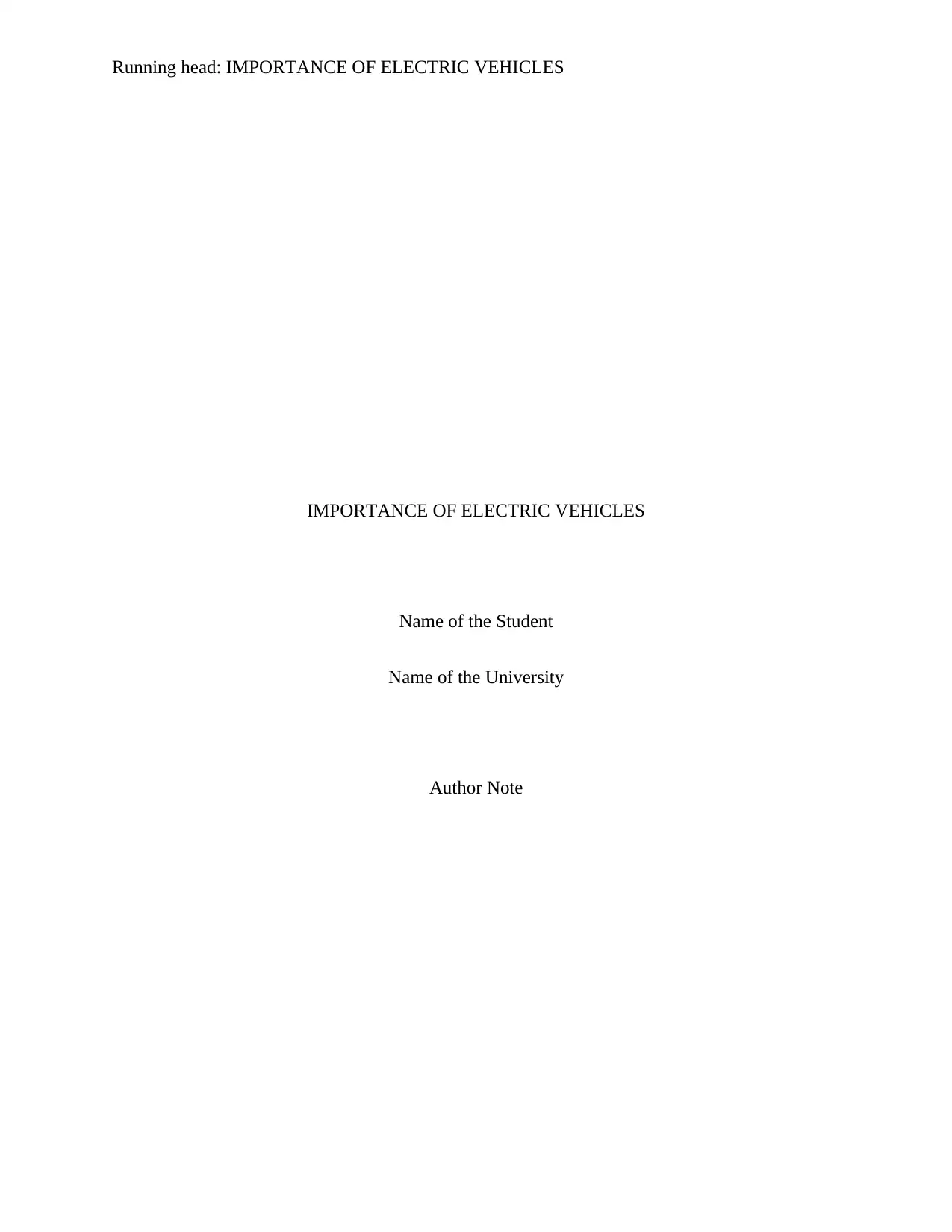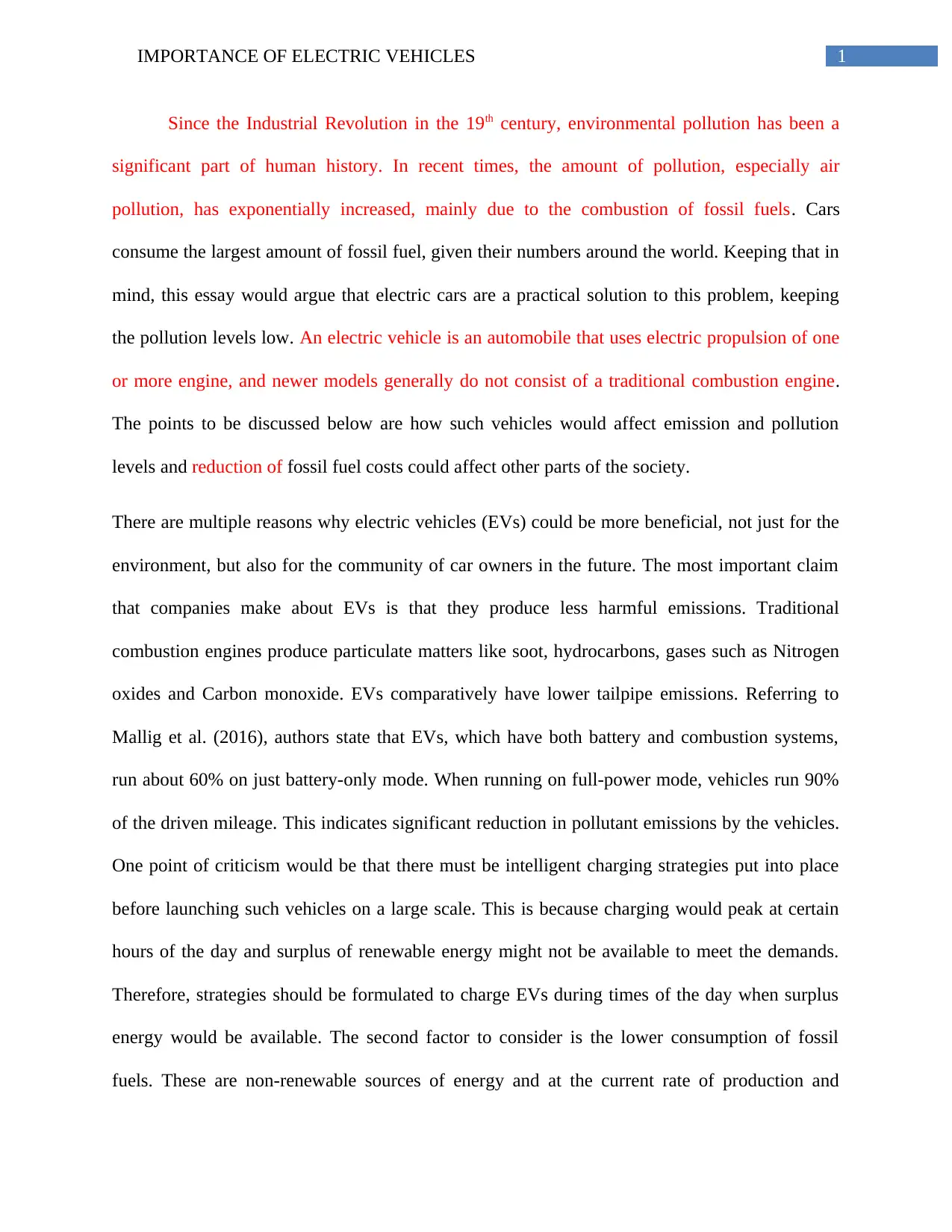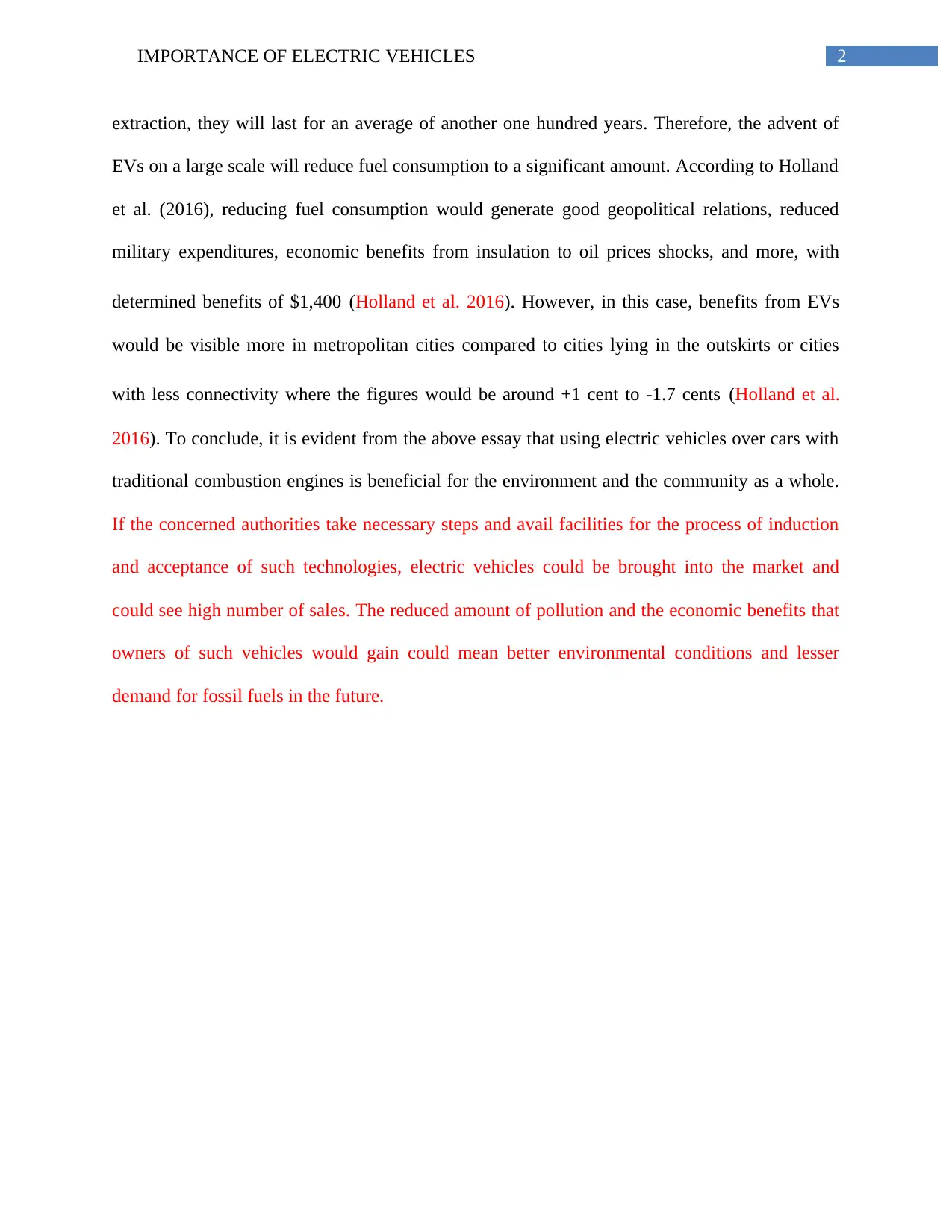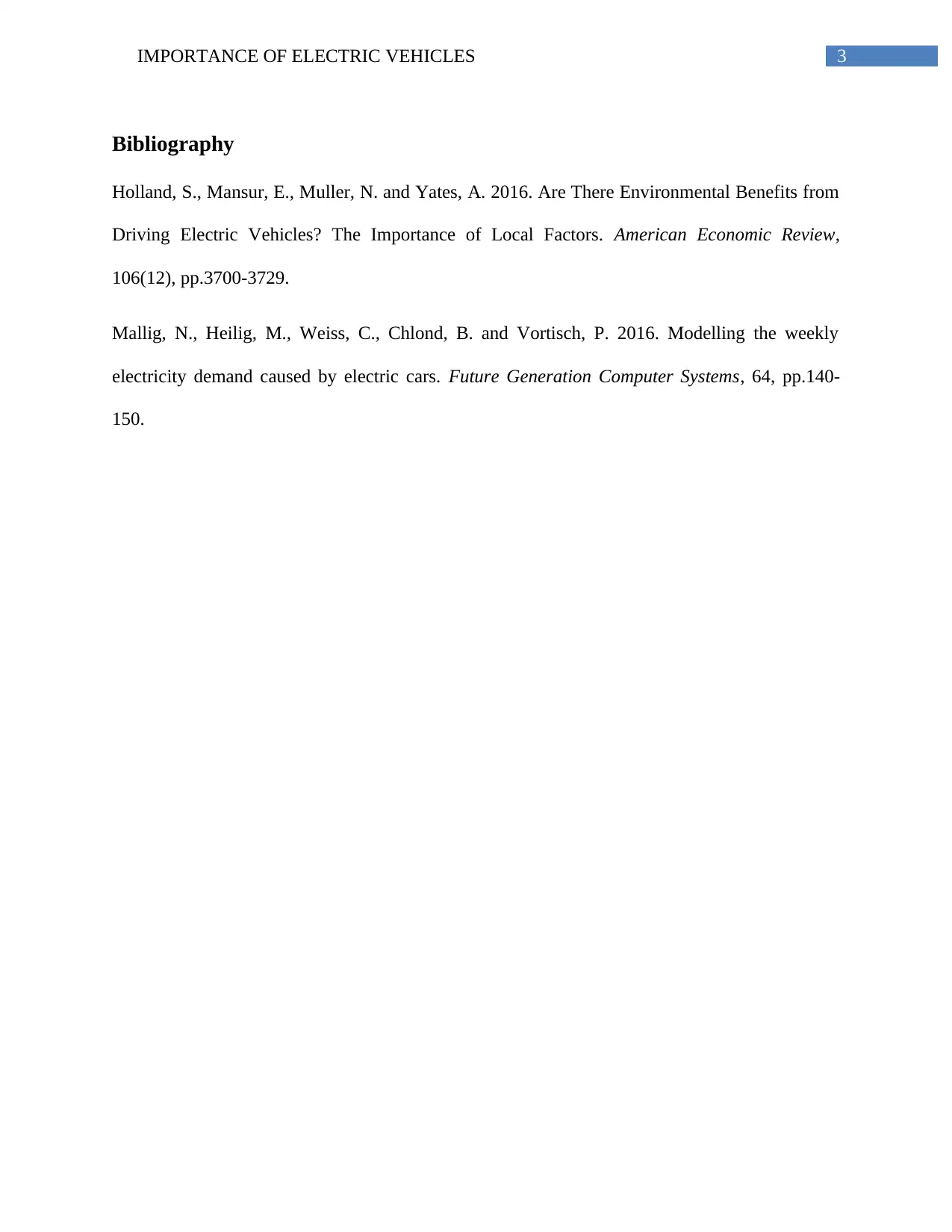Importance of Electric Vehicles
VerifiedAdded on 2023/01/10
|4
|721
|97
AI Summary
This essay discusses the importance of electric vehicles in reducing pollution and fuel consumption. It explores the benefits of EVs for the environment and the community.
Contribute Materials
Your contribution can guide someone’s learning journey. Share your
documents today.
1 out of 4










![[object Object]](/_next/static/media/star-bottom.7253800d.svg)